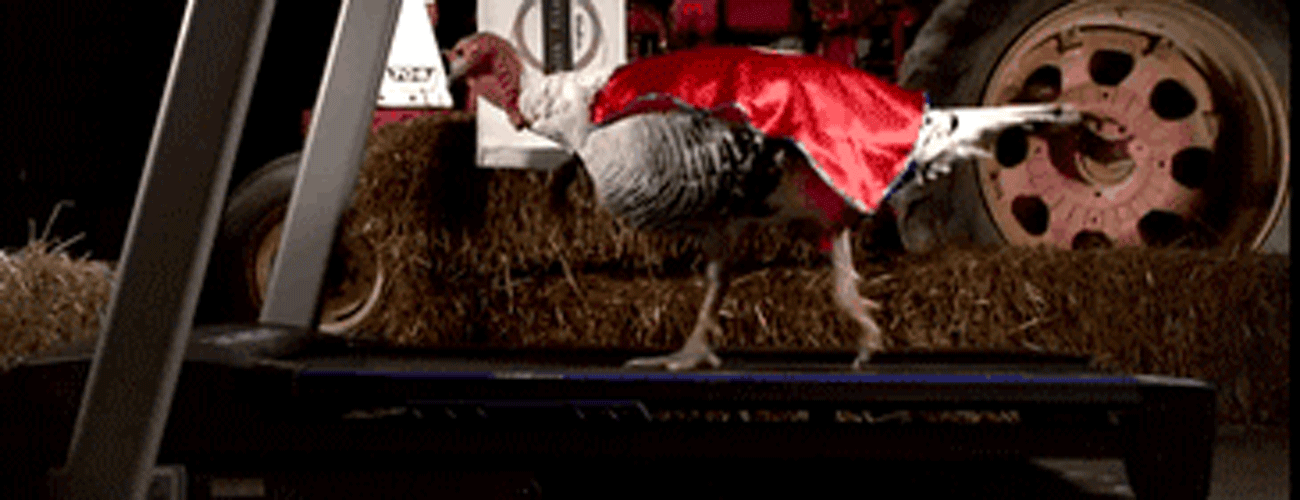Sign up for The Media Today, CJR’s daily newsletter.
It’s the most clichéd time of the year.
More than 100 times in the last month, readers have been urged to “talk turkey” or some variation, according to Nexis. There were nearly 1,000 occurrences of the phrase “all the trimmings” in news reports by the time Thanksgiving was a week away. The overstuffed day will trigger the mother lode of clichés: “’Tis the season”; “Yes, Virginia,” especially when not applied to the actual letter written to The Sun; reference to ghosts, especially applied to “present past”; and so on until we “ring in the new year” without actually using any bells.
For goodness’ sake, it’s enough to send a reader into a tryptophan coma. Most holiday clichés come to us through songs, and you’re welcome to sing them. Just don’t appropriate their lyrics in worn-out written clichés.
We’ve stuffed any number of stockings with rants about clichés in journalism and how tired they are. Sorry to be such a Grinch (or is that a Scrooge?), but something about this time of year sends writers to The Dictionary of Hackneyed Language, which doesn’t exist but probably should, to deck their copy with boughs of ordinary. There shouldn’t be any room at the inn for hackneyed clichés.
Hmm. What does “hackneyed” mean, anyway?
In the 14th century, according to The Oxford English Dictionary, a “hackney” was a horse “of middle size and quality, used for ordinary riding.” Because almost anyone could ride a “hackney,” as opposed to a war horse or a jumper, these middling horses were frequently hired out. So a “hackney” soon became an ordinary horse for hire. Because these “hackneys” were nothing special and were used a lot, “hackney” came to be applied to many things that were worn out, plain, or undesirable. A “hackney” could be a drudge, a slave, or a prostitute as well as a horse, and, later, a kind of carriage pulled by that horse.
Around 1740, the OED says, “hackneyed” came to mean “Used so frequently and indiscriminately as to have lost its freshness and interest; made trite and commonplace; stale.” Like that legendary fruitcake that (probably never actually) has been sent around a family for years, and the stories about it.
The noun “hack” grew up the same way, quickly taking on the sense of tired and worthless as well as meaning “for hire.” (That’s why cabbies are called “hacks.”) Few writers call themselves “hacks” because of the negative associations, yet many of those “hacks” are devotees of the “hackneyed.”
Now, let’s talk turkey. The phrase “talk turkey” usually means “speak frankly,” though this time of year it’s more likely to be a discussion of how to cook the bird. People might not use it as often if they realized its derivation seems to be white settlers in North America cheating Native Americans.
While “talk turkey” might have originated in colonial times, the first recorded use is in 1824. The story has many variations, and no one is sure any of them are true. One common explanation is that a white man went hunting with a Native American, and they bagged some turkeys as well as some less desirable birds, possibly buzzards or crows. The white man said something like, “You take the crow and I’ll take the turkey, or I’ll take the turkey and you take the crow,” according to The Dictionary of American Slang. In other words, the white man was intent on keeping the good bird. The Native American supposedly replied, “You’re not talking turkey to me.”
A version of this story was repeated in 1837 in Niles’ Weekly Register, “containing political, historical, geographical, scientifical, statistical, economical, and biographical documents, essays and facts.” One of the most widely circulated magazines in the United States, it may be responsible for spreading that story, right or wrong.
The earliest uses of “talk turkey,” whatever its origin, involved talking to someone pleasantly. The World Wide Words blog says the meaning “to talk frankly to” is a shortened version of “to talk cold turkey to,” which did mean to use straightforward or harsh terms. In some areas of the country, “talk turkey” also means “shooting the breeze,” discussing meaningless things.
Meaningless things, kind of like holiday clichés. Even when ’twas the night before Christmas, try to be more like a snowflake, aiming for freshness and originality rather than beating that poor, tired horse again.
Has America ever needed a media defender more than now? Help us by joining CJR today.



